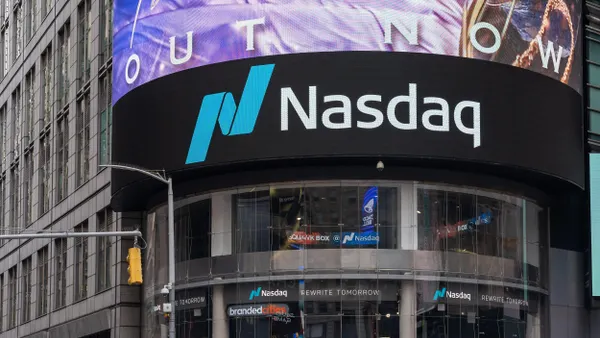Dive Brief:
- LabCorp joined foremost rival Quest Diagnostics in identifying rising personnel costs as a headwind for the business, per comments on its fourth quarter earnings call Thursday.
- While LabCorp and Quest both called out the trend, management at the two clinical lab networks described the situation differently, respectively calling it "nothing unusual" and an emerging source of "pressure."
- Despite wage headwinds and ongoing pricing pressures, LabCorp, like Quest, forecast an increase in adjusted earnings per share in 2020 amid posting its latest batch of financial results.
Dive Insight:
LabCorp's diagnostics division increased revenues by near 4% in the fourth quarter, largely due to positive impact from acquisitions. However, adjusted operating dropped from 16.5% to 15.8%. LabCorp attributed the decline to the negative effect of the Protecting Access to Medicare Act on the prices Medicare pays for tests, as well as to higher personnel costs and cybersecurity investments.
Management at LabCorp has called out the impact of rising personnel costs on results before, noting in the third quarter that "merit increases" drove up spending. The topic was more thoroughly talked through in the most recent set of financial results, though.
Responding to an analyst question about the effect of personnel costs on diagnostic margins, CFO Glenn Eisenberg said there is "nothing unusual" about the situation the company currently faces. Personnel costs are the main source of spending at LabCorp and, as such, normal wage inflation is a driver of additional expenditure.
Quest, in contrast, framed personnel costs as a more acute, emerging issue. Talking to analysts on a quarterly results conference call late last month, Quest CEO Steve Rusckowski explained how the "tightening labor market" is affecting his company.
"What we're finding, and it's all very local, is that we have pressure in some of those geographies to up our wages more than we have historically, because we have to be competitive ... for those resources. So that's putting pressure on our wage bill," Rusckowski said.
Quest and LabCorp are competing directly for workers with certain skills but companies elsewhere in healthcare, and even in unrelated industries, are also going after some of the same workers. Quest, for example, employs 3,500 couriers with vehicles that run its logistics, putting in competition with a large, diverse range of companies also seeking couriers.
The competition between LabCorp and Quest for staff is taking place against the backdrop of a fight for market share. UnitedHealthcare reset the boundaries of that fight early in 2019 by granting Quest access to its patients. Quest grew organic test volumes by 3% in the fourth quarter. That above-market growth suggests Quest is winning share.
Quest CFO Mark Guinan said the gains are "coming from multiple competitors, not just our chief competitor." That fact is reflected in the results from LabCorp, which grew organic volumes by close to 1% in the fourth quarter despite increased competition.
Having weathered the impact of the change to the UnitedHealthcare contract, LabCorp CEO Adam Schechter does not see any significant shifts in market share stemming from managed care changes in 2020. In the longer term, Schechter thinks the preferred lab network set up by UnitedHealthcare is a potential source of share gains for "a lab like us."











